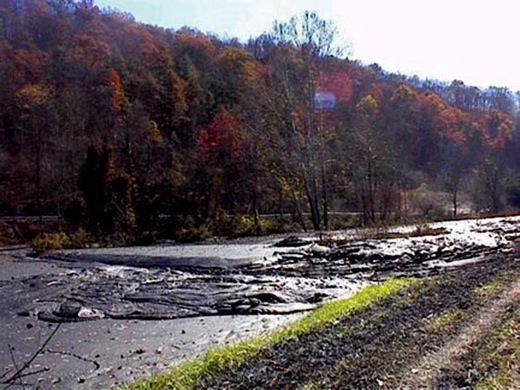Introduction
There are two realities "out there" now competing for verification among those who think about national affairs and make things happen. The dominant one (let's call it the Status Quo) is that our problems of finance and economy will self-correct and allow the project of a "consumer" economy to resume in "growth" mode.
This view includes the idea that technology will rescue us from our fossil fuel predicament -- through "innovation," through the discovery of new techno rescue remedy fuels, and via "drill, baby, drill" policy. This view assumes an orderly transition through the current "rough patch" into a vibrant re-energized era of "green" Happy Motoring and resumed Blue Light Special shopping.
The minority reality (let's call it The Long Emergency) says that it is necessary to make radically new arrangements for daily life and rather soon. It says that a campaign to sustain the unsustainable will amount to a tragic squandering of our dwindling resources. It says that the "consumer" era of economics is over, that suburbia will lose its value, that the automobile will be a diminishing presence in daily life, that the major systems we've come to rely on will founder, and that the transition between where we are now and where we are going is apt to be tumultuous. My own view is obviously the one called The Long Emergency.
Since the change it proposes is so severe, it naturally generates exactly the kind of cognitive dissonance that paradoxically reinforces the Status Quo view, especially the deep wishes associated with saving all the familiar, comfortable trappings of life as we have known it. The dialectic between the two realities can't be sorted out between the stupid and the bright, or even the altruistic and the selfish.
The various tech industries are full of MIT-certified, high-achiever Status Quo techno-triumphalists who are convinced that electric cars or diesel-flavored algae excreta will save suburbia, the three thousand mile Caesar salad, and the theme park vacation.
The environmental movement, especially at the elite levels found in places like Aspen, is full of Harvard graduates who believe that all the drive-in espresso stations in America can be run on a combination of solar and wind power. I quarrel with these people incessantly. It seems especially tragic to me that some of the brightest people I meet are bent on mounting the tragic campaign to sustain the unsustainable in one way or another.
But I have long maintained that life is essentially tragic in the sense that history won't care if we succeed or fail at carrying on the project of civilization. While the public supposedly voted for "change" this fall, I maintain that they underestimate the changes really at hand. I voted for "change" myself in pulling the lever for Barack Obama.
I regard him as a figure of intelligence and sensibility, but I'm far from convinced that he really sees the kind of change we are in for, and I fret about the measures he'll promote to rescue the Status Quo when he moves into the White House a few weeks from now.
Where We Are Now Without reviewing all the vertiginous particulars of the year now ending, suffice it to say that the US economy fell on its ass and that the "global economy" did a face-plant as well.
The American banking sector imploded spectacularly to the degree that investment banking actually went extinct -- as if a meteor landed on the corner of Madison Avenue and 51st Street.
The response by our government was to shovel "loans" onto the loading dock of every organization that pretended to be something like a bank, while "bailing out" an ever-longer line of corporate claimants with a pitiable song-and-dance.
The oil markets went on a roller coaster ride. The housing bubble collapse grew to avalanche velocity (taking out whole colonies of realtors, mortgage brokers, and construction contractors in its path), the commercial real estate sector developed hemorrhagic fever, retail drove off a cliff on Christmas Eve, the stock market fell in the toilet, jobs and incomes went up in a vapor, and tens of millions of ordinary citizens addicted to revolving credit found themselves in a life-and-death struggle for the means of existence. None of this is over yet.
The Year Ahead
Much of what has been lost in 2008 will not be recovered: enterprises, personal fortunes, chattels, reputations. I expect a period of euphoria to mark the early weeks, perhaps months, of the Obama team. It will be a relief to have a president who speaks English correctly and has experienced something like real life prior to politics. Restoring credibility and legitimacy in leadership will be a big deal. If nothing else, we may recover a collective sense of consequence from a president who tells the truth, even the harsh truth.
The age when it was enough to claim that "mistakes were made" might be over. A sign of this sort of change may be the commencement of prosecutions for misdeeds in banking and securities that are now destroying the entire system of deployable capital. A good place to start will be an investigation of Henry Paulson for insider trading stemming from Goldman Sachs's shorting of its own issued mortgage-backed securities when Mr. Paulson was the company's CEO.
Beyond his case, there should be enough work at Attorney General Eric Holder's office to employ a line of law school graduates stretching from Brattle Street to the planet Mars. It will be salutary for the nation to see those who engineered the banking collapse come to greater grief than the mere surrender of their Gulfstream jets and Hamptons villas.
By the way, being allergic to conspiracy theories, I don't believe for a minute that there is some kind of shadow elite of "Bilderburgers" standing in the background to protect these grifters -- and I also believe the reason these paranoid notions persist is because it is otherwise hard to account for the extravagant irresponsibility of the Bush circle and its servelings.
Apart from "cleaning up Dodge," so to speak, and from issues of collective character-and conscience-in-office, I worry that the avalanche of troubles already ongoing will overwhelm Mr. Obama and his people. It's also well worth worrying whether they will pursue policies similar in kind to the ones pursued by Bush, namely throwing money at everything and anything, and it sure looks like they are planning to do just that.
I am especially concerned about an "infrastructure stimulus" project aimed at highway improvement at the expense of public transit. This would be the epitome of a campaign to sustain the unsustainable. We need to begin planning right away for a transition away from automobiles, not in order to be good socialists but because Happy Motoring is at the core of our unsustainability trap.
The car system is going to fail in manifold ways whether we like it or not, and it will fail due to circumstances already underway. For one thing, it will cease to be democratic as the remnants of the middle class find it impossible to get car loans, or pay for fuel, or insurance, and that will set in motion a very impressive politics-of-grievance setting apart those who are still able to enjoy motoring and those who have been foreclosed from it.
Contrary to what you might make of the the current situation in the oil markets, we are in for a heap of trouble with both the price and supply of petroleum (more on this below). And there is no chance in hell that any techno rescue remedy to keep all the cars running by other means will materialize.
A consensus in the blogoshpere says that the stock markets will rebound strongly during the first Obama months. This is possible just on the basis of pure "animal spirits," but the Obama Bounce will occur against a background of continued dismal business and financial news. It will appear to defy that news.
By May of 2009, the stock markets will resume crashing with the ultimate destination of a Dow 4000 before the end of the year. Meanwhile, jobs will vanish by the millions and companies will go bankrupt by the thousands, especially in the so-called service sector, and in all the suppliers of such, along with the landlords in all the malls and strip malls.
The desolation will mount quickly and will be obvious in the empty storefronts and trash-filled parking lagoons. In the event, two things will become increasingly clear to the nation: that the consumer economy is dead, and that there is no more available credit of the kind that Americans are in the habit of enjoying.
We'll turn around early in 2009 and discover that we are a much poorer nation than we thought because from now on credit will be extremely hard to get for anyone for anything. The businesses that survive will have to keep going on the basis of accounts receivable.
This is the area where the crash of giants will be heard. I've been saying since publication of The long Emergency that comprehensive downscaling in all our activities, from farming to business to schooling to governance, will be the categorical imperative of the years ahead.
Giant enterprises requiring giant loans to get from quarter to quarter will tend to not make it. Borrowing from the future will become a practical impossibility as past bad debts from previous borrowings continue to unwind, cease performing, and get written off. This argument implies that the federal government will tend to flounder just as General Motors, Citicorp, Target Stores and other gigantic enterprises will tend to flounder.
It would be sad to see a President Obama so hamstrung and helpless, and it is largely why I see his role as largely symbolic -- as a reassuring presence encouraging the distressed public to bravely bear their hardships, and to be kind and helpful among their neighbors. Households, like businesses, will have to pay as they go from earned income. The house as ATM is over.
Credit cards are maxed out and credit ceilings are lowering like the ceiling in "The Pit and the Pendulum," preparing to slice-and-dice the old "normal" of family life in America. Bankruptcy will be the new Nascar.
A lot of families will lose everything. They will sift and disperse into the housing owned by other family members -- parents, siblings -- and a strange new not-altogether comfortable kind of togetherness will become common. Over time, a lot of people will go looking for casual work "under-the-table"( and probably low-paying). To some degree, these workers will begin to look and act like a new servant class, and before too long they may be absorbed into the households of people who employ them.
There will be plenty of room for them there. Counties, municipalities, and states will join in the bankruptcy fiesta. It would be reasonable to expect collapsing services as a result. This would be a situation fraught with danger -- of rising crime, of public health emergencies as water systems are not kept up and sewage treatment becomes unaffordable. I don't imagine the federal government stepping into every Podunk or Metropolis from sea to shining sea and propping up these services.
People will have to cope with danger and deprivation. 2009 may be the point where we begin to understand what kinds of places will be more hospitable to human society further ahead. I maintain that our giant urban metroplexes have way overshot their sustainable scale and will contract severely.
With all the economic hardship, we ought to expect a lot of demographic churning, people leaving hopeless places and moving on to something more promising. I believe we will see them move to smaller towns and smaller cities.
The reorganization of the rural landscape into smaller-scaled farms has not begun to occur -- though 2009 might be very hard on agribusiness, given the shortage of capital and if oil begins to march up in price by late winter. Eventually, the rural landscape will require the labor of many more people than is currently the case.
Whatever else happens, 2009 will surely see a massive return to home gardening as budgets become strained to the extreme. As the New Urbanist Andres Duany said recently, "Gardening is the new Golf!"
The Oil Scene
Many were stunned this year to witness the parabolic rise and fall of oil prices up to nearly $150 and then back around $36 by Christmas time. Quite a ride.
I said in The Long Emergency that volatility would be the hallmark of post peak oil because it was obvious that advanced economies could not absorb super high prices and would crash in response; that at some point after crashing, these economies would respond to the new lower oil price, resume their cheap oil habits, and build to another price rise. . . and crash again. . . in a declension of ever-lower industrial activity.
What I probably didn't realize at the time was how destructive this cycling between low-high-and-low oil prices would actually be in the first instance of it, and what a toll it would take right off the bat. We can see now that our first journey through the cycle took out the most fragile of the complex systems we depend on: capital finance.
As a result, a huge amount of capital (say $14 trillion) has evaporated out of the system, never to be seen again (and never to be deployed for productive purposes). It will be harder for the USA to rebound from the grievous injury to this crucial part of the overall system, and Europe has foundered similarly -- though the European nations are not burdened to the same degree by the awful liabilities of suburbia. Even if these advanced economies -- throw in Japan too -- remain moribund, the price and supply prospects for oil look ominous.
My own guess is that the price of oil has overshot on the low end just as it overshot on the high end, and that, when all is said and done, we'll still see an upwardly trending price line over the long haul.
The plunge, which began right after the $147 peak in July 2008, was as much the result of banks, hedge funds, and individuals dumping oil investments and positions to raise cash as it was a matter of the markets predicting a sharp fall-off in economic activity (and supposedly oil consumption). The truth is that demand destruction for oil in the USA has been surprising mild compared to the drop in price.
Jim Hansen's Master Resource Report says that gasoline consumption dropped from 9.29 million barrels a day in 2007 to 8.99 million barrels a day for 2008. That's not much of a fall-off, especially compared to the price drop. As Julian Darley of the Post Carbon Institute put it recently: "There won't be any energy bail-out." And, as many other people have noted, the recent plunge in oil prices strongly implies future supply destruction, since so many planned oil projects have been suspended or cancelled because they are economic losers at $40-a-barrel (or even $70).
Even projects well underway, such as Canadian tar sand production, have been scaled back or shut down because they don't make sense at current prices. Some of these other newer projects will now never get underway -- they have missed their window of opportunity with so much capital leaving the system -- and so the hope of offsetting very-near-future depletions in old giant oil fields looks dimmer and dimmer. Those depletions are very serious.
For instance, Mexico's super-giant Cantarell oil field, the second-largest ever discovered after Saudi Arabia's Ghawar field, has shown a 30 percent depletion rate in the past year alone. (Pemex had forecast a 15 percent rate entering the year.) Cantarell provides over 60 percent of Mexico's total production, and Mexico is America's third largest source of imports -- just after Saudi Arabia (#2) and Canada (#1).
Obviously, Mexico soon will lose its ability to export oil, and as that occurs, America is going to feel more than pinch -- more like a two-by-four upside the head. In short, remorseless depletion is underway and we are less likely now than even a year ago, to make up for it. At some point, then, demand, even if slightly lower, will catch up with declining supply. My prediction for 2009 is that we will see two things occur, possibly at the same time: a resumption of rising prices, and spot shortages.
I say this because the global economic fiasco is sure to produce geopolitical friction, and inasmuch as America has to import almost three-quarters of the oil we use, the prospect for trouble is great. The tragic part of all this, of course, is that the temporary plunge in oil prices has prompted an incurious American public to assume, once again, that the global oil predicament is some kind of a fraud.
Given the flood tide of fraud they have been subject to in banking and investment matters, I suppose you can't blame them from thinking that everything is some kind of a scam. Given feeble car sales this season, there are reports that an increasing percentage of those sold now are are trucks and SUVs. Though I give Boone Pickens high marks for stepping up to the leadership plate, I'm not altogether on board with his energy proposal for swapping natural gas for gasoline in motor fuels while we swap out wind power for natural gas in electric power generation.
I don't believe that the ballyhooed shale-gas-plays of the last few years will prove-out long-term, as some huckster's claim. They are expensive to drill and run, and they all tend to deplete very quickly -- around one year. I'm not convinced we have the capital or the resources even to come up with the steel necessary to drill for it.n>
In the meantime, there are still those who hope (as described above) that various alt.energy systems will insure the continuation of our Happy Motoring habits. This is an idle hope, and 2009 will be very sobering for those who imagine that hybrid cars, or electric cars, or "air" cars, or any other kind of car technology are going to save the day.
Even if President Obama mounts an "infrastructure stimulus" program, it will not keep up with all the necessary routine road repair that our highway system requires. The extreme financial hardship faced by localities and states insures that they will have to postpone a lot of expensive highway maintenance -- even if the federal government fixes a big bunch of bridges and tunnels -- and so we face the interesting prospect that our roadway systems will enter their own deadly zone of systemic failure even before the whole car issue is settled.
I am waiting to see whether Mr. Obama will undertake a restoration of passenger railroad service. I've said enough about this in the past, but it's worth reiterating that a failure to get comprehensive passenger rail service going will be a sign of how fundamentally unserious we are as a nation.
This is the "other shoe" that a lot of people are waiting to drop. Right now we are caught up in a compressive debt deflation as mortgages stop "performing" and loans of all kinds are welshed on. Since money is loaned into existence, and a great many loans are not being repaid, then a lot of money is going out of existence. That's what I mean when I say that capital is leaving the system.
At the same time, the Federal Reserve has made good on its promise to drop money from helicopters if necessary to prevent an implosion of the banking system (as all that older money goes out of existence), and so it's now a question as to when the amount of new money will exceed the disappeared old money. (Of course when I say money, I mean "money," because we are dealing here in a shadow realm of assumed value.)
In any case, there is bound to be a lag period between the time that the Fed's money is dropped from the choppers and the time it actually filters through the banks and other recipients to the so-called "real economy" of people who buy and sell real things.
The credible estimates I hear run between six and 18 months. I'll only venture to guess that we could see the start of serious inflation sometime in 2009. To some extent, all currencies are now free-falling together, some at slightly faster rates than others, but the situation of the US dollar is so grotesquely dire, and our structural imbalances so monumental, that it is hard to imagine that our currency will not win the international race to the bottom. Gold resumed its movement upward against the dollar a week before Christmas, and that may be an early sign.
The government -- and anyone badly in debt -- benefits much more from inflation than deflation, so every effort will be made to avert the latter. The trouble lies in the government's dumb incapacity to control dangerous things that it sets in motion, so that an inflationary campaign to avoid compressive deflation can so easily lead to a fiasco of super or hyper inflation -- the kind that kills governments and turns societies into murderous monsters. I'll forecast the that the US dollar is worth 40 percent of its current value by next Christmas. Geopolitics
Well, now, who the hell knows what's in store. Aside from a few bombs here and there, and pirates skulking around the horn of Africa, the world scene was miraculously free of major incidents in 2008 -- perhaps the worst being a toss up between the September Mumbai bombings and the fiasco in Georgia, where the US prompted Georgia President Mikheil Saakashvili to send troops into the South Ossetia region and the move was answered by overwhelming force from neighboring Russia, leaving the US looking feckless and retarded for our troubles.
But otherwise, there wasn't a whole lot of action out there. Until the last few days of the year, that is. I'm sure the ever-growing cohort of American anti-semites who send me emails will be tickled when I assert that the Hamas rocket attacks against Israel of recent days guaranteed a sharp response from Israel -- and now, of course, Hamas is playing the crybaby card: "... what'd we do to deserve this...?" Well, you fucking fired a bunch rockets into Israel.
Did you ever hear of cause-and-effect? This matter requires no further elucidation, except that it seems to suggest a ramping back up of hostilities. I wonder if it is the beginning of a new coordinated offensive by Islamic extremism aimed at taking advantage of the West's current economic plight (and the West's probable aversion to anything that will complicate its desired recovery).
We'll know in a month or so, I think, since any coordinated campaign (if such a thing were possible) might well be aimed at confounding the new American president. The other hot corner of the world right now is the India-Pakistan border where the 60-year-old rivalry, which has already produced three wars, looks to be gearing up for yet another round. I'm not the first one to say that Pakistan is an extremely dangerous regional player, being an economic basket case, possessing a score or so of nuclear bombs, harboring more Islamic fundamentalist maniacs than any other place in the world, and having a government held together with duct tape and twine. The caper in Mumbai last September could well have been construed as an act of war, but somehow India kept its head. Who knows where this is going. . . .
So far I have only described what is already obviously going on. Add to this the likelihood that Iran is closer to achieving membership in the atomic weapon club. They've been spinning their centrifuges all year and nobody has done anything about it. My guess is that neither the US nor Israel will attempt to take out their facilities in the year ahead.
If Iran used a nuclear device against Israel, or anybody else, they would be asking to become, in turn, the world's largest ashtray. End of story. A different story, though, is how Iran might behave if and when the US Military presence in Iraq is reduced. I can imagine Iran doing anything possible surreptitiously to gain control over Iraq's southern oil regions around Basra, but even the Iraqi Shia don't like the Iranian Shia that much.
Anyway, Iran's economy has suffered hugely from the fall in oil prices. That nation may be in for more internal trouble than they have seen in thirty years since the Shah was tossed out by the minions of Ayatollah Khomeini. There's been a lot of sentiment the past year that as the US and the Europe fall into economic disarray, China would emerge as the great new hegemonic superpower.
While it's come a long way in a quarter-century, China's internal problems are still enormous and worsening. They're in trouble with water, food imports, mass unemployment, and energy. They have locked in some oil contracts around the world, but they are still susceptible to vagaries in the oil markets and Black Swan events.
As the US consumer economy falls into a coma, and the shipping containers from China to WalMart get sparser, the Chinese government will face the wrath of millions of unemployed workers. I believe they will struggle through 2009, perhaps growing more surly as the US dollar inflates and their holdings of treasury bills begins to look more like a swindle.
Russia may be suffering economically for the moment due to the crash of oil prices, but they are energy resource-rich -- at least for the next couple of decades -- and if they don't like the current price, they can keep more of their oil in the ground until the price looks more attractive. I think Mr. Putin has the confidence of the Russian people and will survive the current malaise. Japan remains a riddle wrapped in toasted nori. They're beggaring their own factory workers to stay solvent. Their banking sector has been zombified for a generation. They import 95 percent of the energy they use. Do they have a plan?
One can imagine them sliding in resignation back to something like the sixteenth century, giving up the whole industrial circus as more trouble than it's worth, just as they once gave up on firearms. The over-arching geopolitical theme of 2009 will be the end of robust globalism as we've known it for some time. Reduced trade, competition for energy resources, sore feelings over debts and currencies will drive the nations inward or, at least, direct their energies toward their own regions. Note to Tom Friedman: the world turned out to be round after all.
The big theme for 2009 economically will be contraction. The end of the cheap energy era will announce itself as the end of conventional "growth" and the shrinking back of activity, wealth, and populations.
Contraction will come as a great shock to a world of conventionally programmed economists. They will toil and sweat to account for it, and they will probably be wrong.
Unfortunately, this contraction will do its work in unpleasant ways, driving down standards of living, shearing away hopes and expectations for a particular life of comfort, and introducing disorder to so many of the systems we have depended on for so long. People will starve, lose their homes, lose incomes and status, and lose the security of living in peaceful societies. It will become clear that the Long Emergency is underway.
My hope for the year, at least for my own society, is that we will transition away from being a nation of complacent, distracted, over-fed clowns, to become a purposeful and responsible people willing to put their shoulders to the wheel to get some things done. My motto for the new year: "no more crybabies!"












